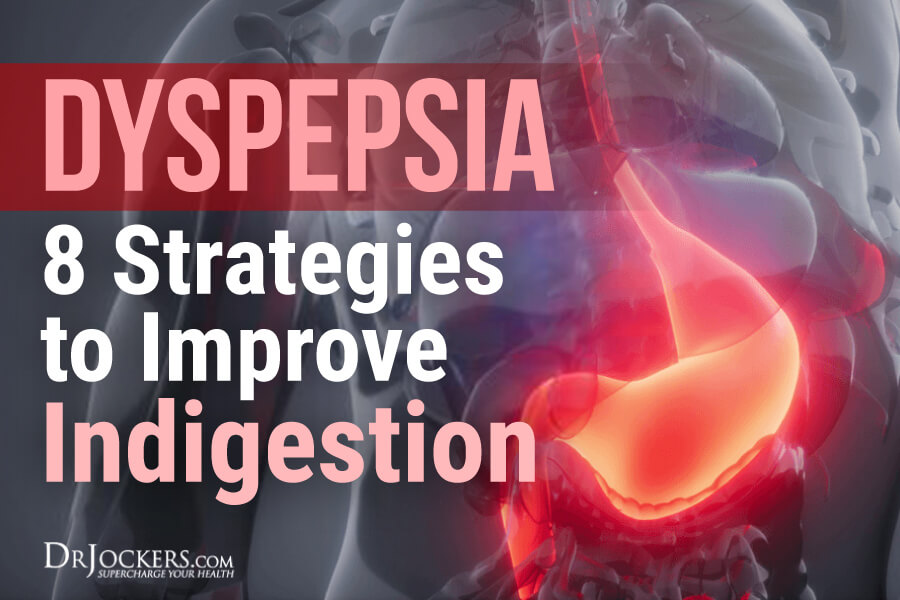 Dyspepsia: 8 Strategies to Improve Indigestion
Dyspepsia: 8 Strategies to Improve Indigestion
One of the most common health issues people experience is dyspepsia, or indigestion. Dyspepsia is a general term that describes painful, difficult or disturbed digestion. Rather than a disease or condition itself, dyspepsia refers to a group of symptoms that will often include abdominal pain, bloating, nausea, heartburn, and uncomfortable fullness when eating.
Dyspepsia is a sign of an underlying health issue. There are many conditions which can cause dyspepsia such as gut infections, stomach ulcers, and gastroesophageal reflux. Anxiety and depression are often associated with dyspepsia due to the intricate connection between the gut and the brain. Many diet and lifestyle factors are also linked to dyspepsia.
Fortunately, there are natural strategies that may improve your symptoms of dyspepsia. Changing your diet can provide huge relief, along with targeted supplementation and other lifestyle strategies. It is important to identify and address your underlying issues in order to heal dyspepsia. Blood and stool tests can be very helpful in this process.

What is Dyspepsia?
Dyspepsia, or indigestion, is a persistent or recurring pain or discomfort in the upper abdomen. It is the unpleasant symptoms that occur when your digestive system is not functioning properly (1).
Dyspepsia is usually a sign of an underlying health issue and is not considered a condition in itself. Dyspepsia is very common and affects both men and women of all ages. Women and older adults have a higher risk of dyspepsia (2).
Symptoms of Dyspepsia
Symptoms of dyspepsia vary from person to person. These symptoms may be experienced occasionally or as frequently as daily. Symptoms may include:
- Pain or discomfort in upper abdomen
- Bloating
- Early fullness during a meal
- Uncomfortable fullness after a meal
- Burning in the stomach or upper abdomen
- Belching and gas
- Nausea and vomiting
- Acidic taste
- Growling stomach
- Decreased appetite
People often confuse heartburn (or reflux) with dyspepsia. People with dyspepsia may also have heartburn, but heartburn and dyspepsia are two separate conditions. Heartburn is a pain or burning feeling in the center of the chest that may radiate into your neck or back during or after eating.
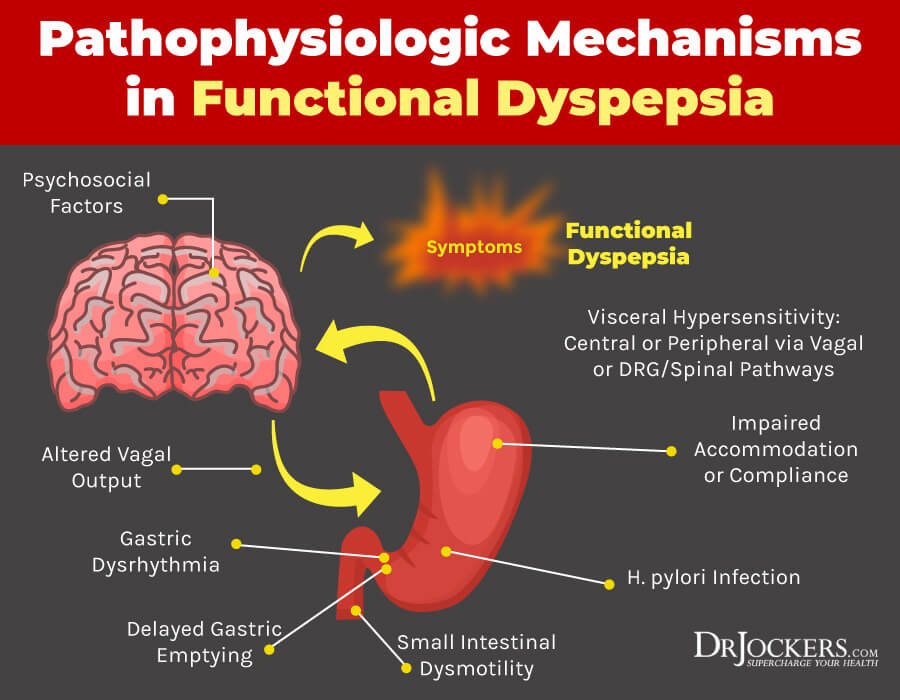
Prevalence of Dyspepsia
Dyspepsia is one of the most prevalent functional gastrointestinal disorders. Around 20% of people globally experience dyspepsia. In the United States, dyspepsia accounts for 5% of visits to general practitioners and about 25% of people suffer from dyspepsia.
Dyspepsia is very costly. A study in 2009 estimated the total direct and indirect costs of dyspepsia to be $18.4 billion (3). This includes medical treatments, over the counter medications, alternative therapies, and absences from work.
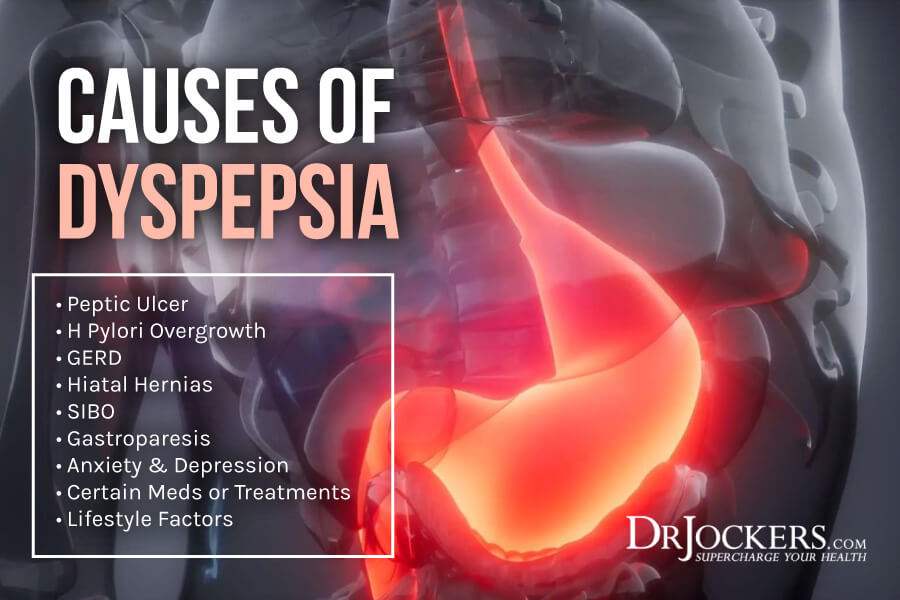
Categories and Causes of Dyspepsia
Dyspepsia can be divided into two main categories: “organic” and “functional,” depending on the underlying cause (1). Organic causes of dyspepsia are peptic ulcers, GERD, gastric or esophageal cancer, pancreatic or biliary disorders, intolerance to foods or drugs, and other infectious or systemic diseases.
Dyspepsia is called functional dyspepsia when there is no obvious cause that can be identified (1). It is also called nonulcer stomach pain or nonulcer dyspepsia. Let’s look at some of these causes more closely.
1. Peptic Ulcer
A common cause of dyspepsia is peptic, or stomach ulcers. A peptic ulcer is a sore on the lining of the stomach or duodenum. People with stomach ulcers commonly feel a dull or burning pain in the stomach. Ulcers are often caused by H. pylori infections or the long-term use of NSAIDs (4).
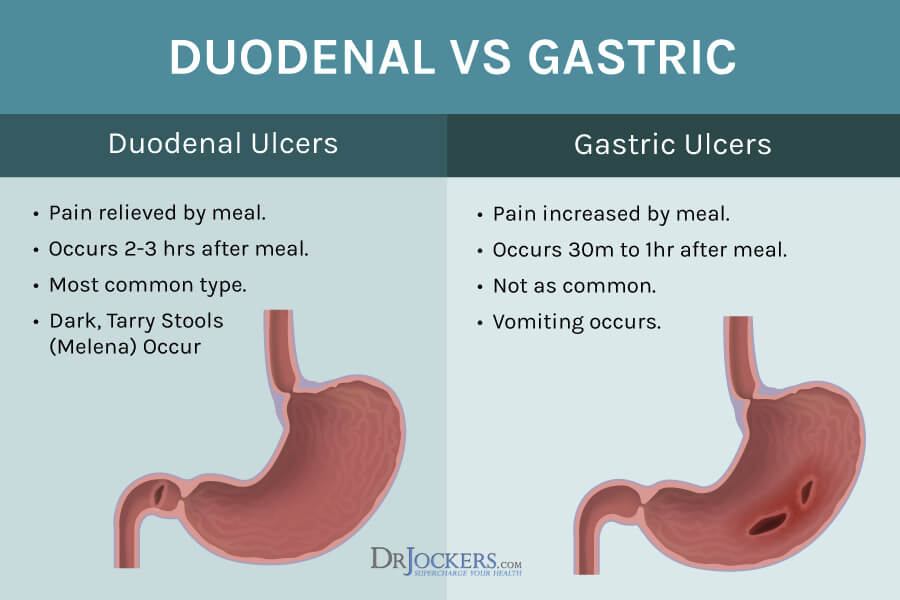
2. Helicobacter Pylori
Helicobacter pylori (H. pylori) is an infection that occurs when the Helicobacter pylori bacteria infects your stomach. Over half of the world’s population is infected with H. pylori, but most never have any signs or symptoms.
When symptoms of H. pylori do occur, they include an ache or burning in the abdomen, nausea, bloating, and other symptoms of dyspepsia. H. Pylori can cause stomach ulcers and be very damaging to the body.
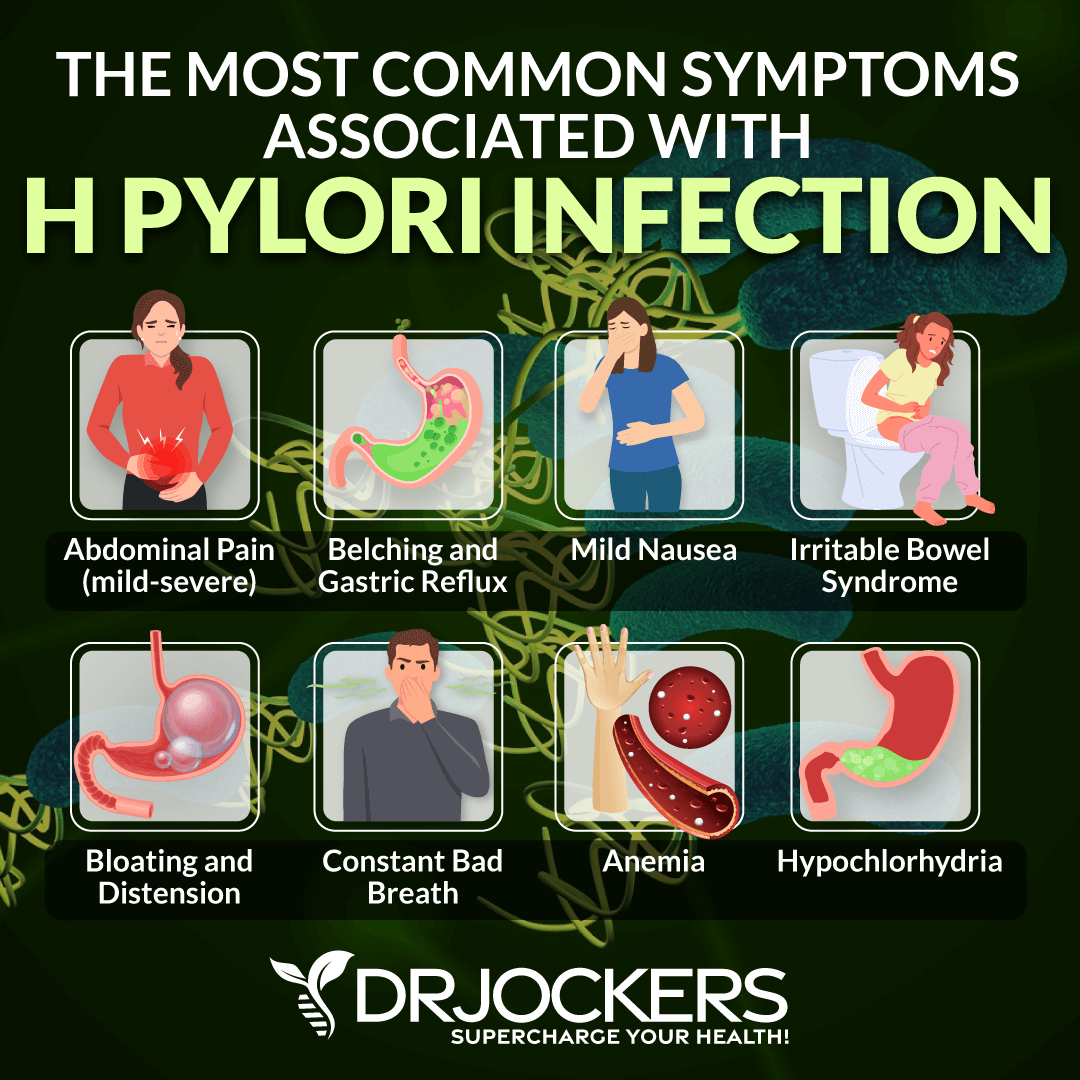
3. Gastrointestinal Reflux Disease
Gastroesophageal reflux occurs when the contents of the stomach back up into your esophagus. The more serious and long-lasting form of reflux is gastroesophageal reflux disease (GERD). GERD affects around 20% of the people in the United States.
There is a great degree of overlap between dyspepsia and GERD (2). Around 38% of people with GERD also have dyspepsia symptoms. Additionally, people with dyspepsia may be at higher risk of developing GERD.
4. Hiatal Hernias and Dyspepsia
A hiatal hernia occurs when a portion of the stomach pushes up through the hiatus. The hiatus is an opening in the diaphragm that connects the stomach to the esophagus. Many people with hiatal hernias do not experience symptoms. However for those who do, the symptoms are usually caused by bile or stomach acid and are similar to those associated with GERD.
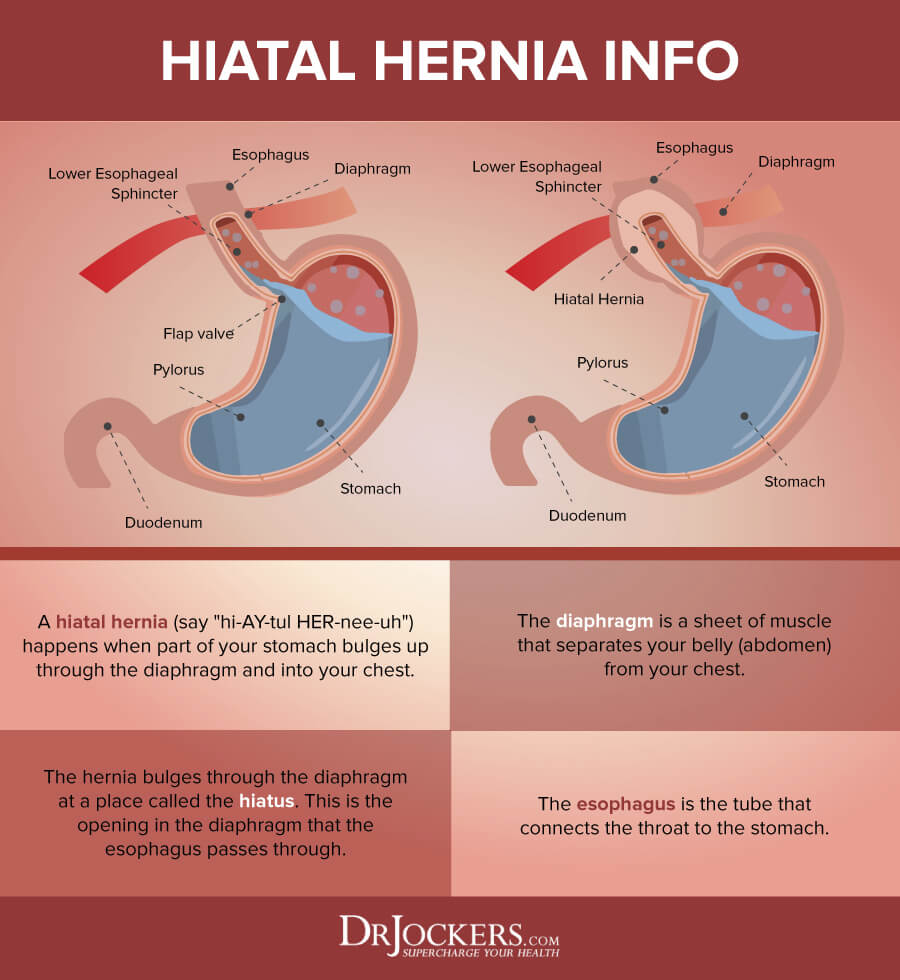
5. Small Intestinal Bacterial Overgrowth
Another gut infection that may cause dyspepsia is SIBO, or small intestinal bacterial overgrowth. There are trillions of bacteria in our intestinal tracts, mostly in the large intestine. SIBO occurs when there is an overgrowth of bacteria in the small intestine. These bacteria in the small intestine cause carbohydrates to ferment which produces hydrogen and methane gases.
Symptoms of SIBO include gas, bloating, diarrhea and/or constipation, and abdominal pain. SIBO can lead to intestinal permeability (leaky gut), autoimmune conditions, food sensitivities, nutrient deficiencies, inflammation, and other health issues.
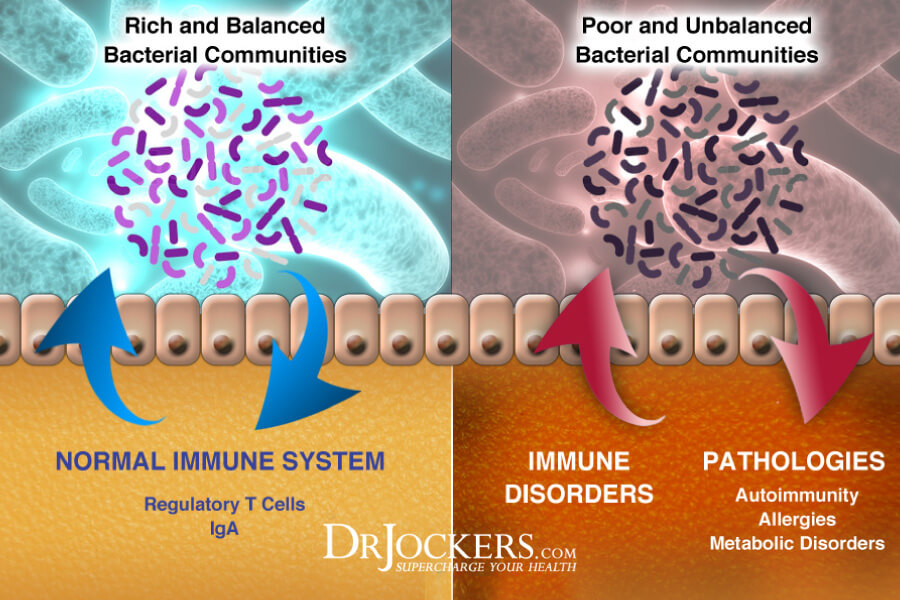
6. Gastroparesis
Delayed gastric emptying is highly associated with dyspepsia. Gastroparesis is a disorder that slows or stops the movement of food from your stomach to your small intestines. Many symptoms of gastroparesis overlap those of dyspepsia and include bloating, a feeling of fullness, heartburn, nausea and vomiting.
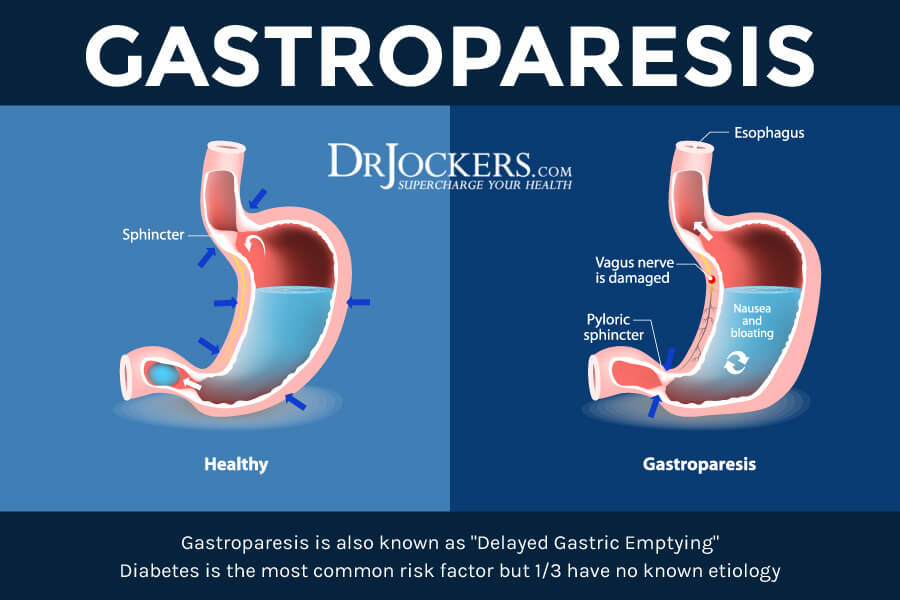
7. Anxiety and Depression
Anxiety and depression are highly associated with dyspepsia. This is due to the bidirectional gut-brain axis which links gut function to emotional and cognitive functions.
Around 75% of people with dyspepsia also suffer from anxiety and almost 50% with depression (5). People who are stressed or tired may experience dyspepsia, especially when they eat in a stressful situation.
8. Certain Medications or Treatments
Certain medications may cause dyspepsia and/or make symptoms worse. These medications include:
- Aspirin and other non-steroidal anti-inflammatory medications
- Estrogen and oral contraceptives
- Steroid medications
- Certain Antibiotics
- Thyroid medications

9. Lifestyle Factors
There are many lifestyle factors that may cause dyspepsia. Eating too much food, eating too fast, and eating high-fat, greasy, or spicy foods may cause stomach discomfort. Swallowing excess air when eating may increase the belching and bloating that are common with indigestion. Drinking excessive amounts of alcohol and smoking are also linked to dyspepsia.
Other possible causes of dyspepsia include irritable bowel syndrome, celiac disease, gastritis, gallstones, esophagitis, stomach cancer, pancreatitis, and thyroid issues. It is important to identify and address your underlying cause to improve your symptoms.
How is Dyspepsia Diagnosed?
Dyspepsia is used broadly to describe difficult digestion. To diagnose dyspepsia, doctors may perform an upper gastrointestinal endoscopy, abdominal ultrasonography, gastric emptying test, and other gastric evaluations (MRI, ultrasound, etc.) (1). Doctors may also order blood tests to rule out other diseases that can cause signs and symptoms similar to dyspepsia.
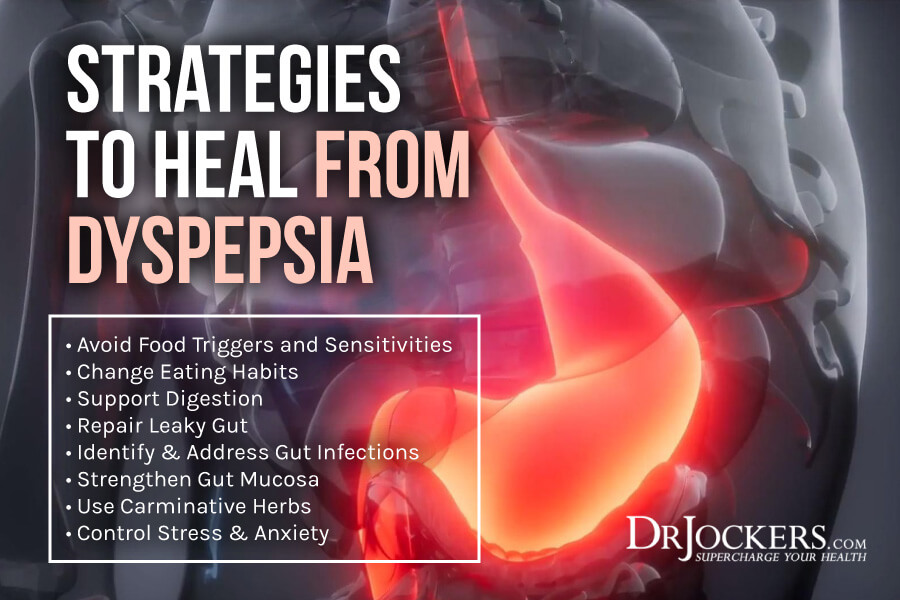
Strategies to Heal from Dyspepsia
To improve painful or difficult digestion and the symptoms of dyspepsia, it is important to follow an easy to digest, anti-inflammatory diet avoiding food triggers. Improving gut health and using targeted supplementation along with other healing strategies may improve your symptoms. It is also critical to identify and address underlying causes.
1. Avoid Food Triggers and Sensitivities
There are several foods that can trigger dyspepsia. These include gluten, grains, dairy, fatty foods, spicy foods, excess caffeine or alcohol, chocolate, and carbonated beverages.
Food sensitivities may also cause difficulties with digestion. When you have food sensitivities, your immune system reacts to certain foods as a threat amplifying an immune-mediated response. This inflames the gut lining and may lead to intestinal permeability, irritable bowel syndrome, and other digestive problems.
People with food sensitivities may experience a variety of uncomfortable digestive symptoms. These include diarrhea and/or constipation, bloating, gastritis, reflux, and associated malabsorption and nutrient deficiencies.
Around 45-75% of individuals have food sensitivities. It is important to identify any food sensitivities and eliminate these foods from your diet for a period of time. For information about different methods of testing for food sensitivities, check out this article.
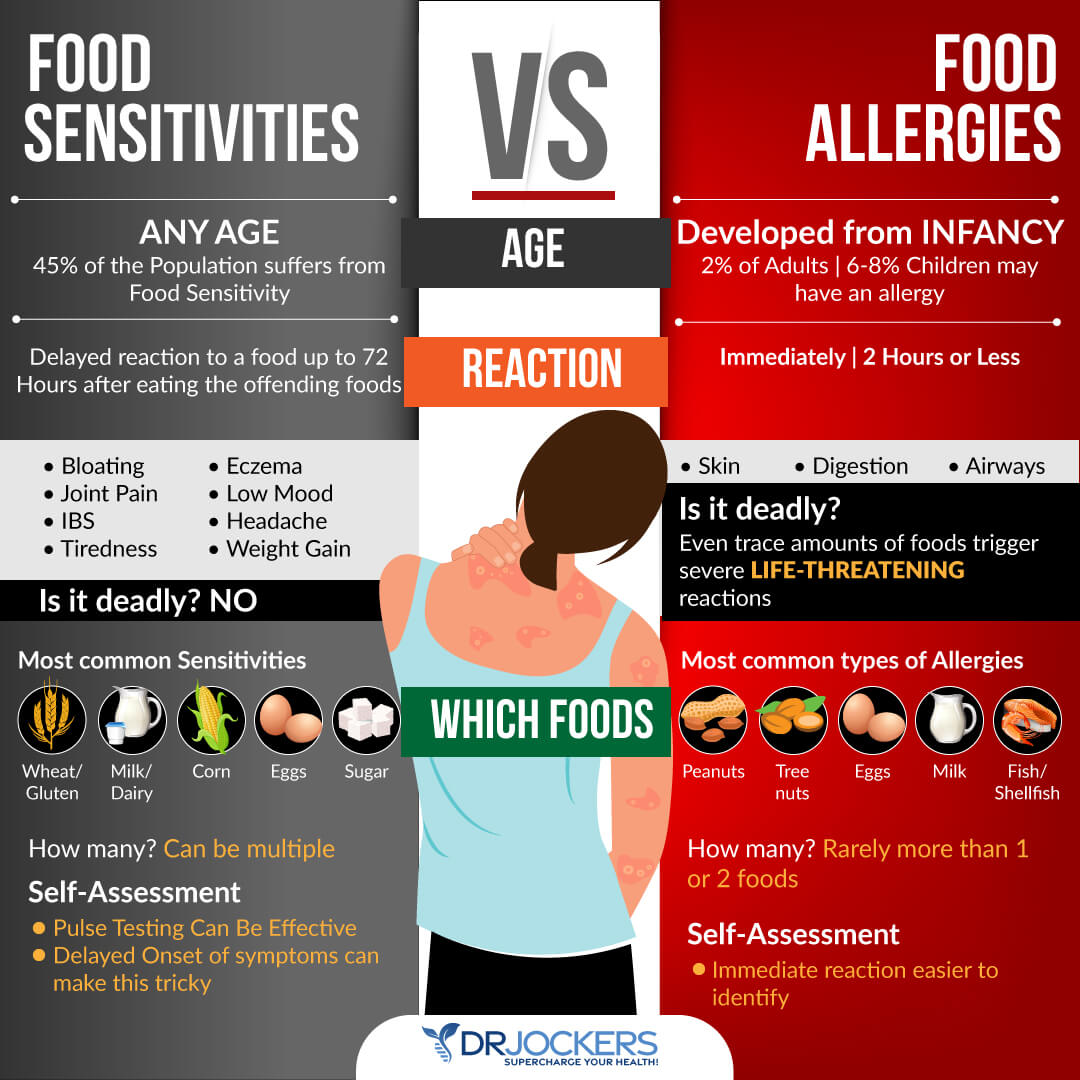
2. Change Eating Habits
One of the most effective strategies for relieving dyspepsia symptoms is to modify your diet and eating habits. You should remove foods that promote inflammation and damage the gut lining and replace them with healing foods.
The most important foods to avoid are refined sugars, processed foods, processed vegetable oils, meat and dairy from conventionally raised animals, and farmed fish. These foods contain chemicals, trans-fats, and other toxic ingredients which are highly inflammatory, create extra acidity in the tissues, and damage the gut.
Foods to include are whole, unprocessed foods which include clean protein, organic vegetables, and healthy fats. Clean protein sources are grass-fed meats, pasture-raised, organic chicken and eggs, and wild-caught salmon.
Non-starchy, cooked vegetables are easier to digest than raw vegetables. Be sure to add healthy fats to your meals. These are found in coconuts, olives, avocados, and their oils, and in grass-fed butter and ghee.
How you eat is also important. Eat smaller meals which will not overwhelm your digestive system, chew your food well, and eat in a relaxing environment. It may also be helpful to do some gentle activity after a meal and avoid lying down for at least 2 hours after a meal.
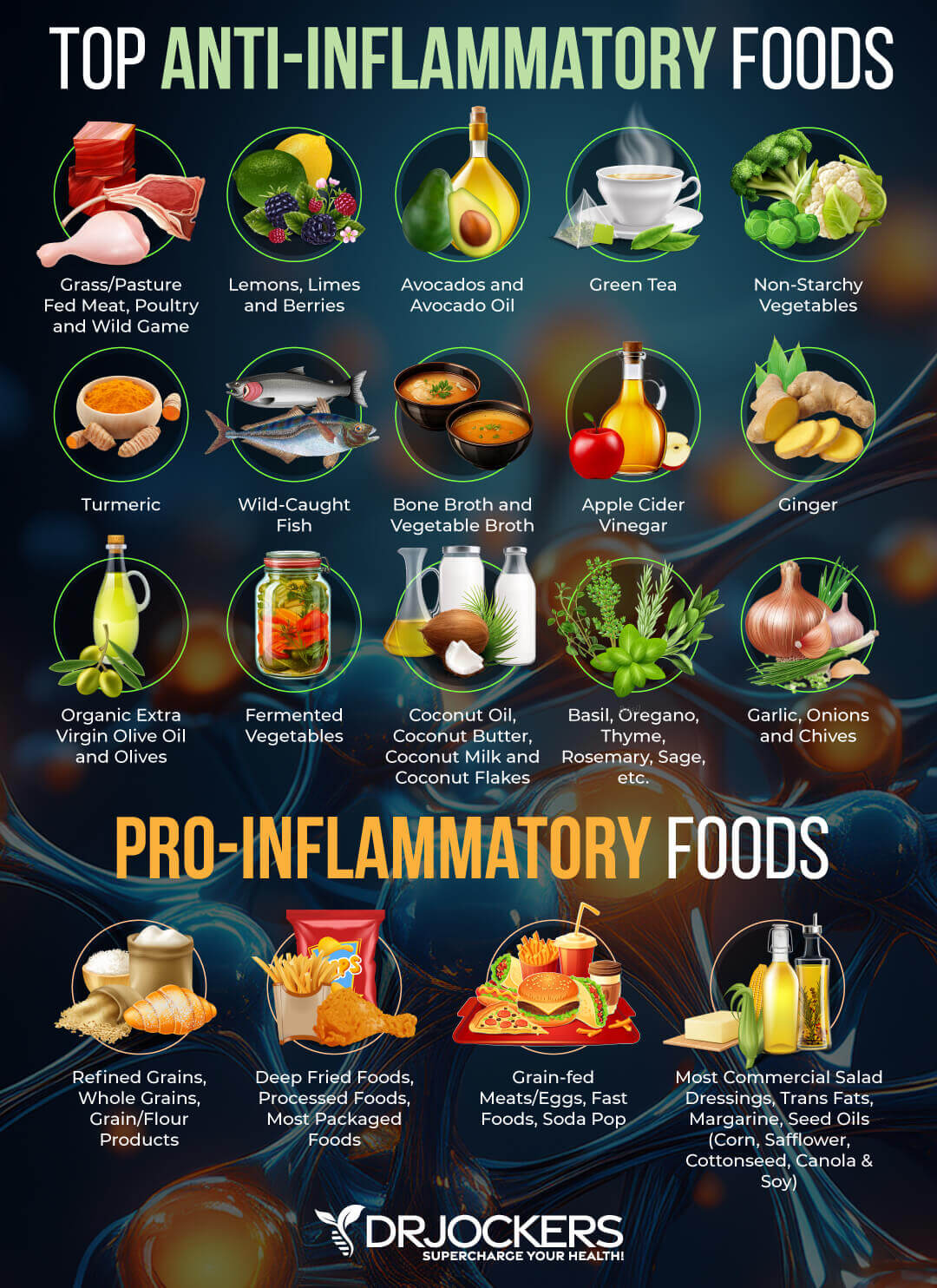
3. Support Digestion
Dyspepsia is often related to difficulty processing food in the digestive tract. Many people with dyspepsia have low stomach acid and insufficient digestive enzyme levels. Adequate levels of both are necessary for proper digestion and nutrient absorption.
Digestive enzyme supplementation is an effective and safe alternative to manage dyspepsia symptoms (6). Taking digestive enzymes with meals helps to reduce stress on the digestive system, improve the digestion of food and absorption of nutrients, reduce inflammation in the gut, and improve digestive issues.
A common misconception is that indigestion is caused by excess stomach acid. On the contrary, many people have low stomach acid. You can improve stomach acid levels by consuming liquid nutrition during the day with at least half of your meals in an easily digestible form. Squeezing fresh lemon juice or apple cider vinegar on meat and vegetables can help pre-metabolize the food.
Be sure to hydrate outside of meals because drinking water with or right after a meal will dilute your digestive juices. Other strategies to help with low stomach aid include eating your protein first (meat is harder to digest), chewing each bite many times, and enjoying your meals in a relaxing environment.
If you have low stomach acid, supplementation with hydrochloric acid may be beneficial. Supplementing with betaine HCl, pepsin, l-glutamic acid, and gentian root to support gastric acidity, digestion and normal gastrointestinal flora can be very helpful.
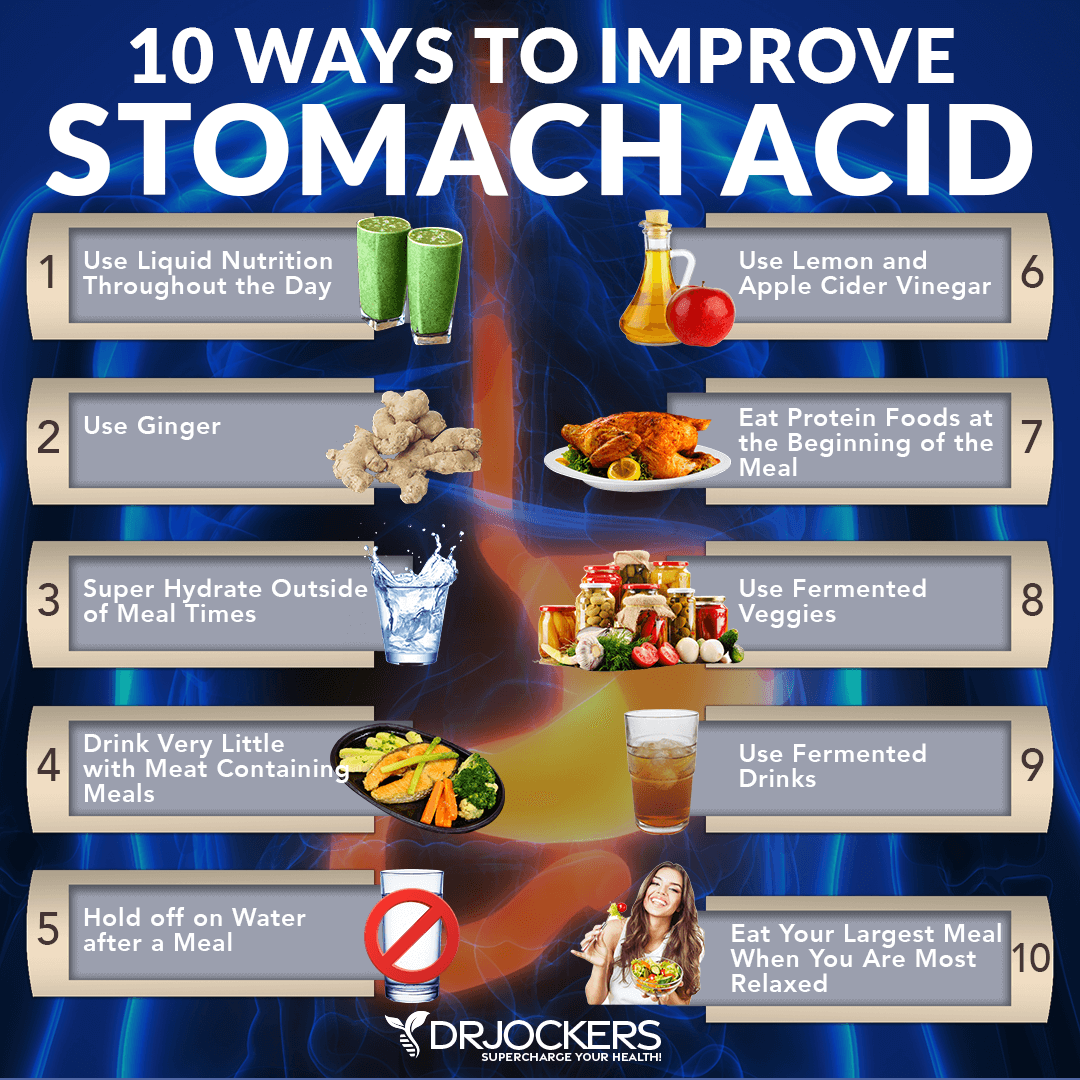
4. Repair Leaky Gut
To improve dyspepsia, it is very important to heal and repair your gut. Leaky gut syndrome, or intestinal hyperpermeability, is a condition in which the tight junctions in the gut lining become too large and abnormally permeable. Undigested food particles and toxins can pass through these holes in the intestinal wall and into the bloodstream. This causes the immune system to overreact and results in chronic inflammation.
Reducing stress on the gut with liquid nutrition and fasting, along with nutrients to repair the gut, can be very effective. Intermittent fasting is a great way to reduce stress on the gut.
With intermittent fasting, the eating time is restricted to a narrower window and you go for longer periods of time without eating. For example, you can go without eating for 14 hours and eat from 11 am to 7pm each day. Water or bone broth fasting are additional fasting strategies that can be very helpful.
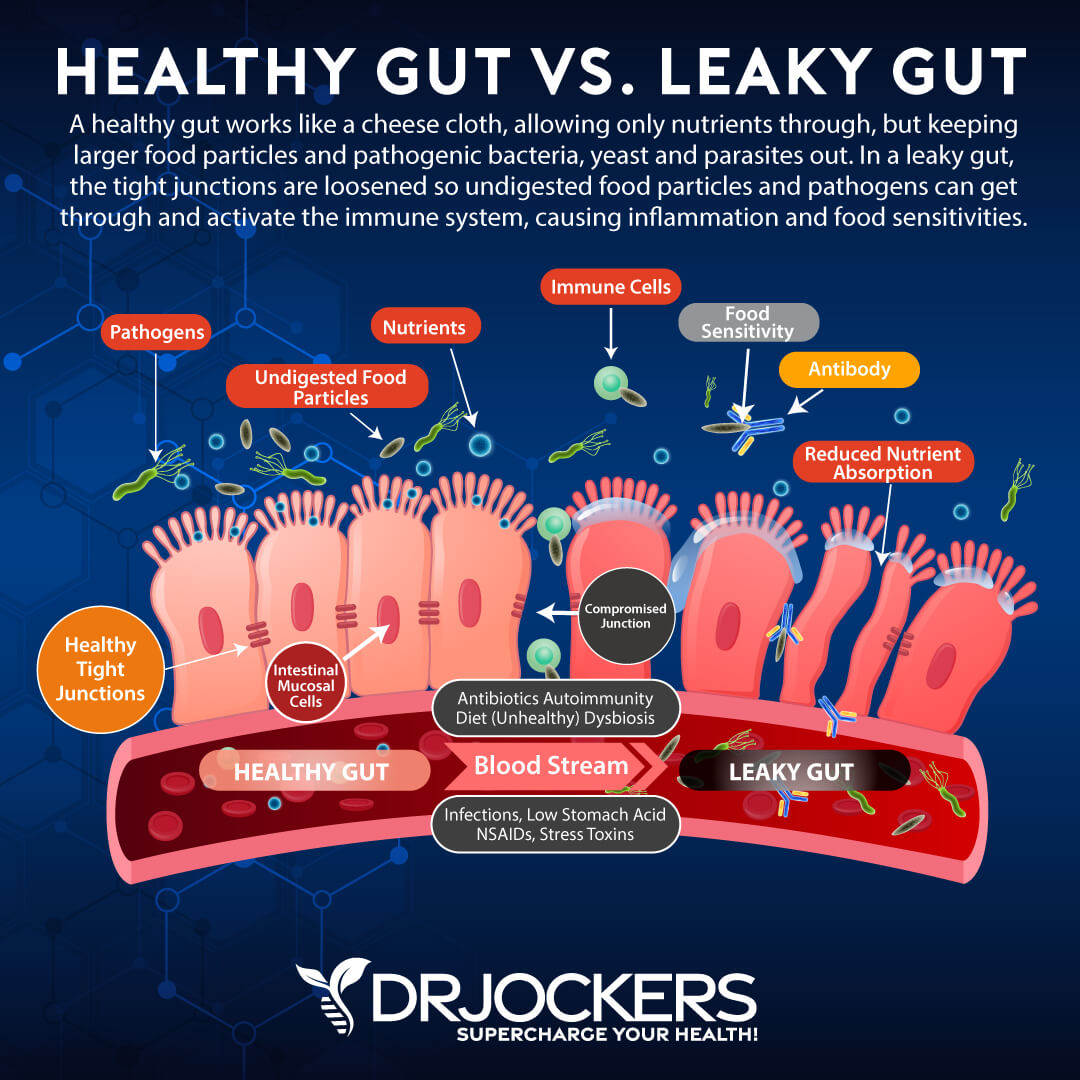
Use Liquid Nutrition:
When our body is under stress from chronic infections, mental emotional stressors or abnormal digestive function, it reduces our ability to produce enough digestive juices for optimal digestive health.
Using liquid nutrition is great for stimulating the digestive process, increasing nutrient absorption, and improving gut health. Liquid nutrition does not require as much energy to digest, so your body can focus on healing and repair.
Using a good quality bone broth collagen in a shake or smoothie is a great way to include liquid nutrition in your diet. Collagen contains amino acids, including glycine and glutamine, which are essential for healing leaky gut.
These amino acids seal the holes in the gut by healing damaged cells and building new tissue. Collagen also makes up the villi, small finger-like structures on the intestinal wall and assists with water absorption in the intestines.
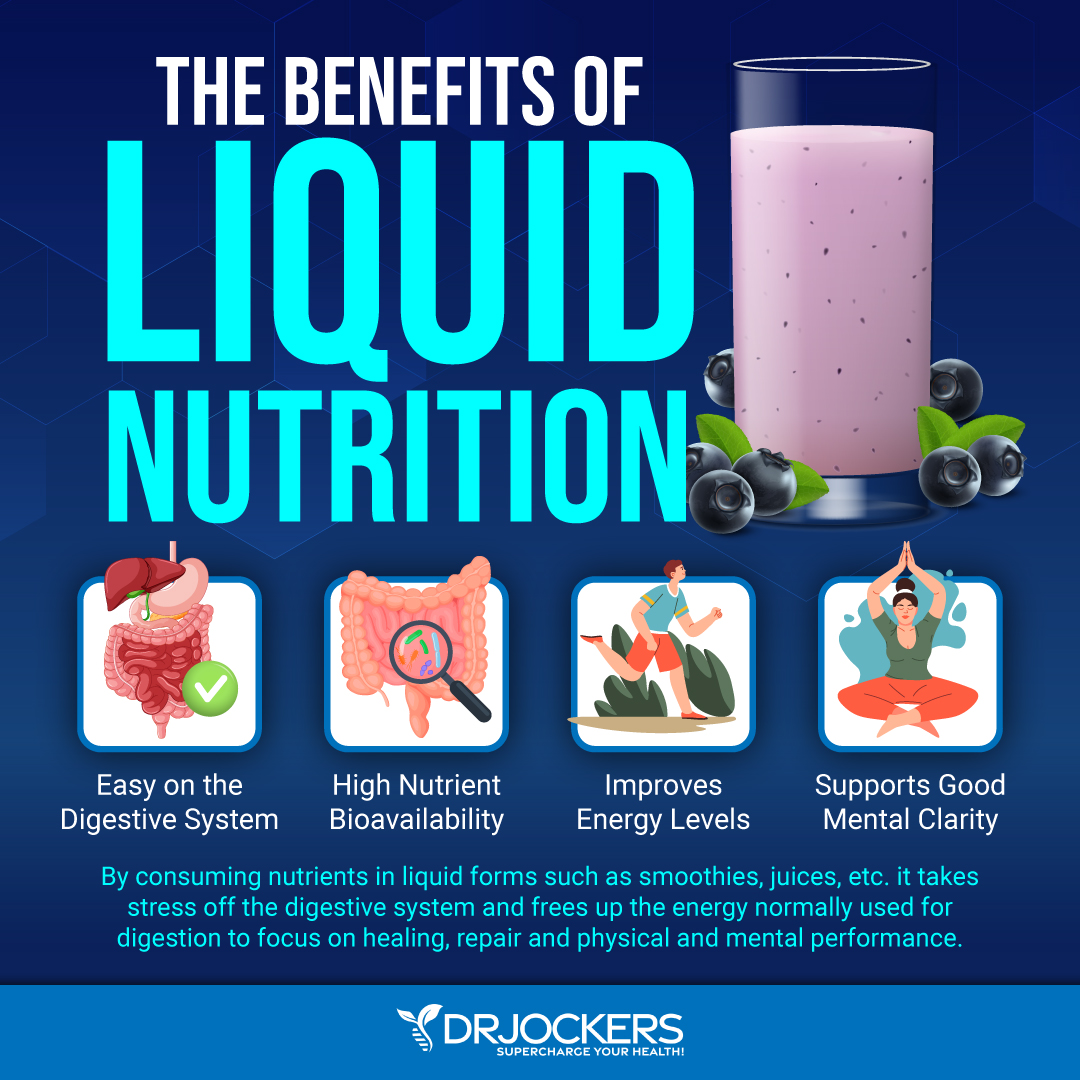
5. Identify and Address Gut Infections
The gastrointestinal tract is a major entry point for pathogens. When these pathogens invade our gastrointestinal system, they can cause infections. (7). Infections are a possible cause of dyspepsia, so it is important to take steps to identify and eliminate gut infections. Addressing gut infections will help to reestablish a healthy microbial balance and heal the gut.
Antimicrobials and probiotics can be very helpful for anyone with gut infections. I like using supplements with berberine, black walnut, wormwood, tribulus and clove. You can typically find supplements that combine a few of these or you.
It is always best to start with a low dosage to make sure you don’t overwhelm your system and work your way up gradually. These herbs help to reduce pathogenic bacteria, yeast, and parasites which create infections in your gut.
Probiotics are beneficial microorganisms (bacteria and yeasts) that keep your gut and body healthy. They are similar to the microorganisms that naturally live in our bodies and support digestive health in many ways (8).
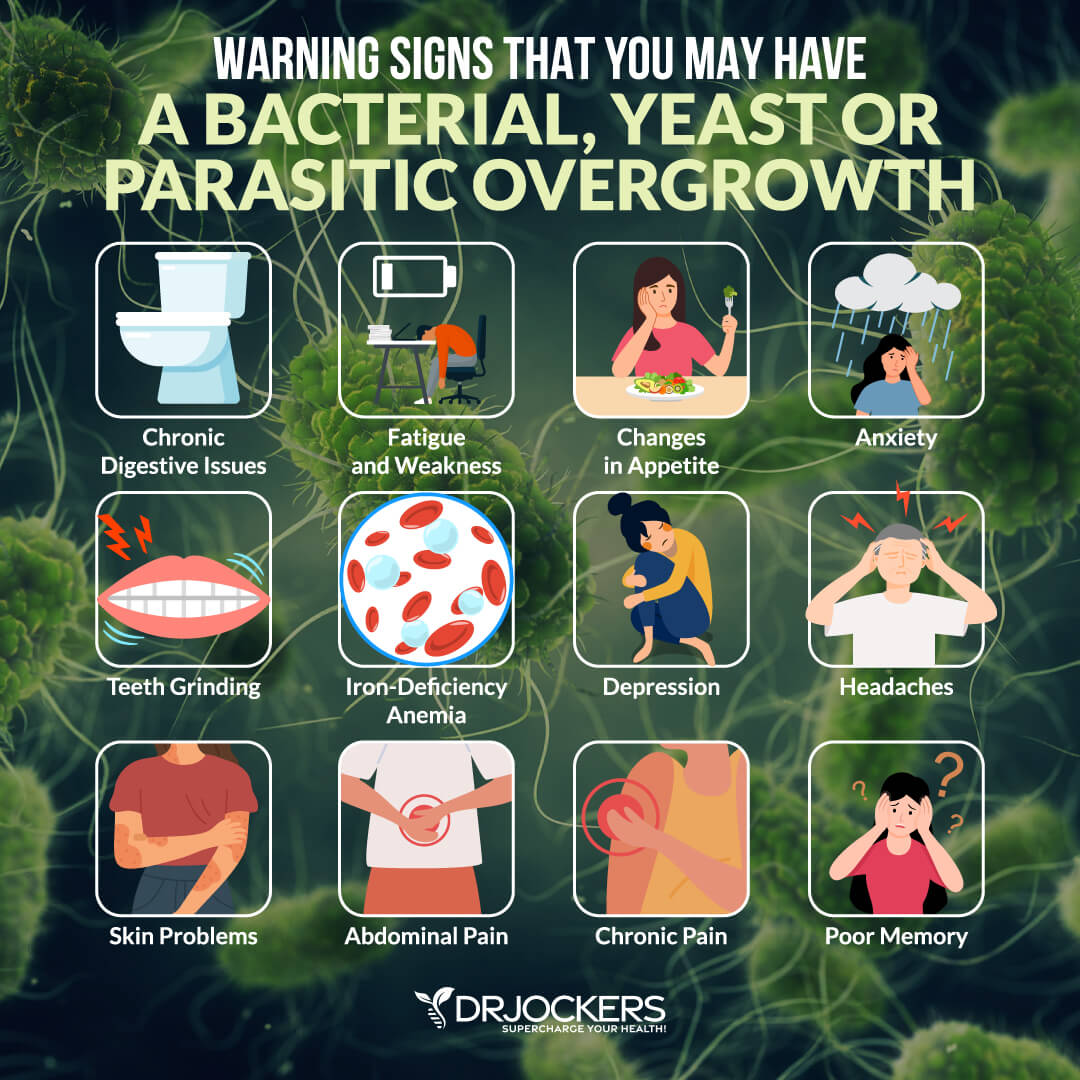
6. Strengthen Gut Mucosa
The gut mucosa is a protective barrier that lines the digestive tract. It houses the gut microbiome, aids in the absorption of nutrients, and protects us from pathogens, toxins, and dietary antigens. Strengthening the gut mucosa is important for improving symptoms of dyspepsia.
Supplementing with colostrum or a bovine-serum immunoglobulin (BSI) blend that support gut barrier function, improve immunity, and decrease inflammation in the gut. These immunoglobulins also bind to environmental toxins, neutralizes pathogens and aid digestion.
To help soothe an irritated gut lining and reduce inflammation, you should consider adding nutrients such as the amino acid l-glutamine, the anti-oxidant quercetin, aloe vera, curcumin, omega 3, EGCG, arabinogalactan, and licorice. This combination may be very effective for improving the healing process of the gut lining.
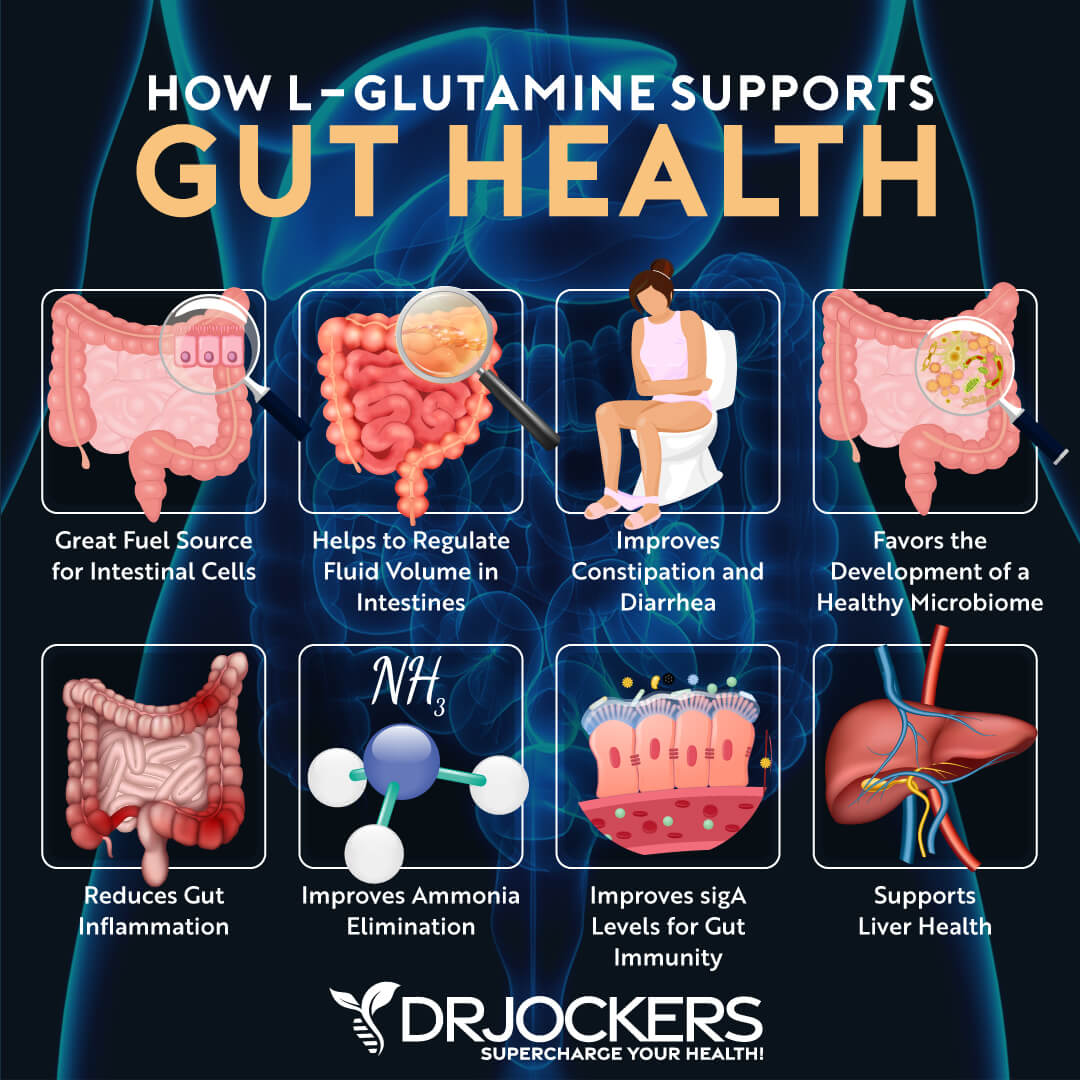
7. Use Carminative Herbs
Carminative herbs are plants with phytonutrients that support digestive health and overall wellbeing. These therapeutic herbs include peppermint, milk thistle, ginger, cinnamon, anise, dandelion root, cilantro, garlic and turmeric. They promote digestion, relieve cramps and gas, and increase appetite.
Great ways to use carminative are in herbal teas, essential oils, fresh herbs, chew on fennel, in juices and fermented vegetables and drinks. For more information on the reasons to use carminative herbs, read this article.
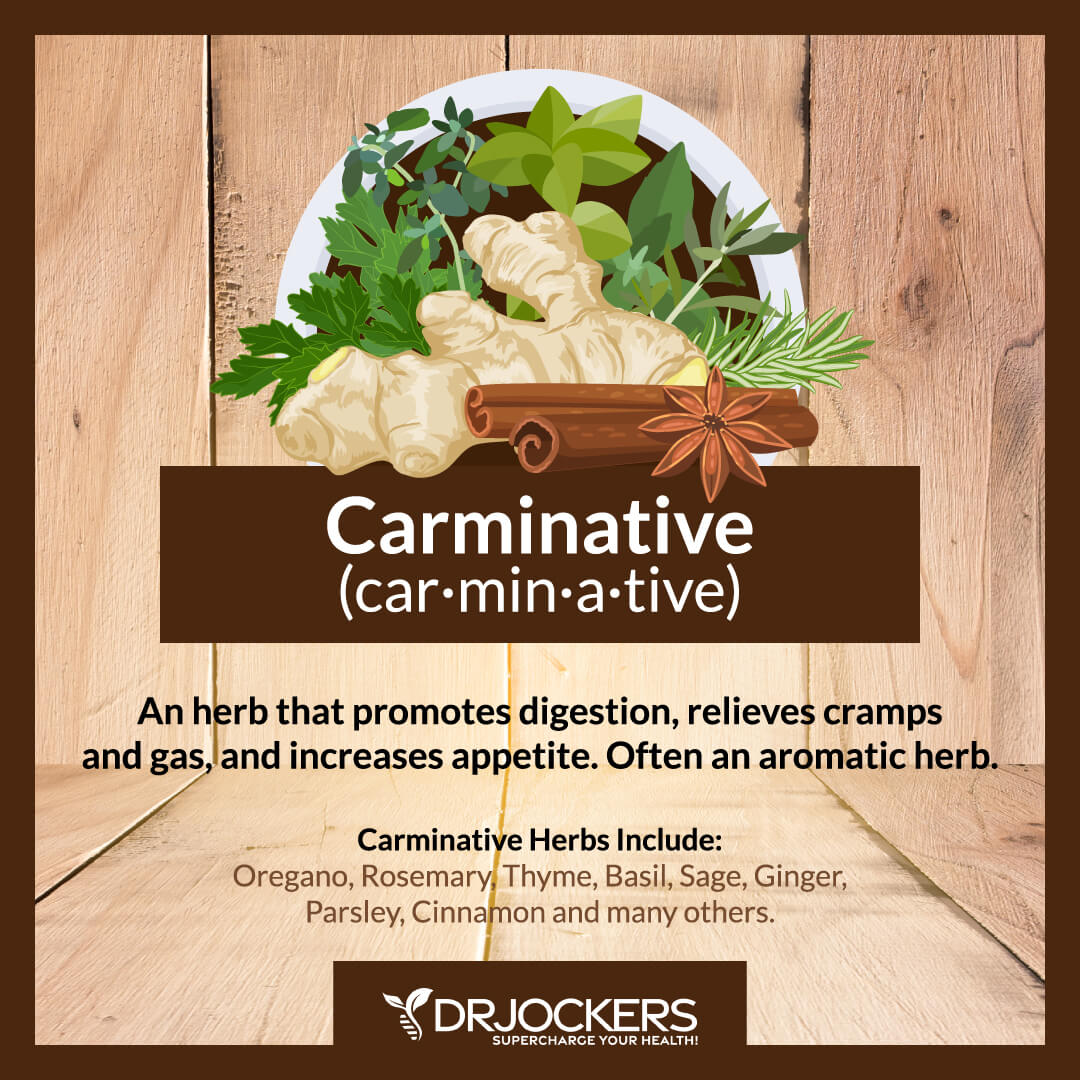
8. Control Stress and Anxiety
The gut and brain are intricately and bidirectionally connected. This connection can link stress and anxiety to stomach problems and vice versa. The gut is in constant communication with the brain and is often referred to as the “second brain”. The nerve cells in your gut manufacture the same neurotransmitters as the brain including 80-90% of your serotonin (9).
Stress and anxiety have effects on gut function and gut-brain interactions. These effects include:
- modulating key inflammatory pathways
- decreasing mucosal blood flow
- causing bowel dysfunction in different ways
- activating the “fight or flight” response in the central nervous system which can slow down or even stop the digestive process
- altering the gut flora, and
- increasing intestinal permeability.
To reduce stress and anxiety, it is important to consume a healing diet and balance your blood sugar levels. Grounding, deep breathing exercises, sunlight exposure, Epsom salt baths, prioritizing restorative sleep, and dry brushing are fantastic stress-relieving strategies.
Supplementing with adaptogenic herbs, such as ashwagandha, rhodiola, ginseng and holy basil may help your body resist and recover from everyday stress and support restful sleep. Using supplemental magnesium may also be helpful as magnesium plays a critical role in stress and sleep.
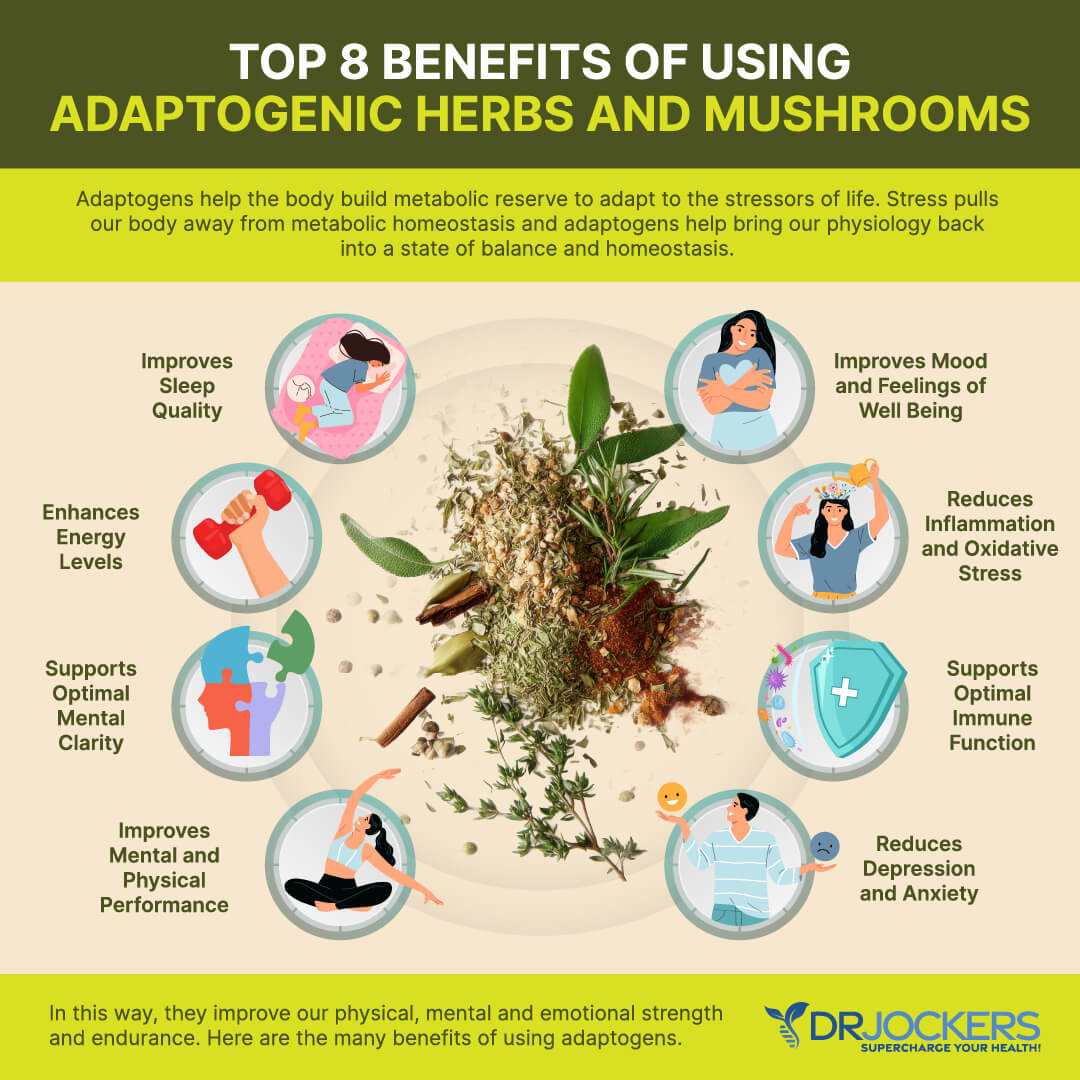
Test for Underlying Causes of Dyspepsia
Stool and blood tests can be helpful for identifying the underlying causes of dyspepsia. These tests are also beneficial for understanding the overall health of your digestive and other systems in the body.
Stool Testing
To test for gut infections, the GI-MAP™ Stool Analysis Test is the most thorough stool test on the market. It is the only FDA-approved DNA test for gastrointestinal microbes and pathogens available.
The GI Map tests for imbalances in the gut microbiome, candida and other fungi, viruses, and parasites, including both protozoa and worms. This comprehensive test reveals the integrity of your gastrointestinal system. It will indicate whether you are producing enough digestive enzymes, your immune response to gliadin, inflammation in the gut, and the level of the immune system in the gut.
Comprehensive Blood Tests
Comprehensive blood tests can be helpful for identifying underlying issues which may be contributing to symptoms of dyspepsia or to rule out other conditions. For complete and thorough blood testing, I recommend the Comprehensive Blood Analysis.
The Comprehensive Blood Analysis includes a CBC with differential, Complete Metabolic Panel, Fasting Glucose, Insulin, and Hemoglobin A1c, Lipid Panel, Iron Panel, Thyroid Panel, inflammatory markers, vitamins and minerals (zinc, copper, vitamins A, D, and B12, folate, magnesium), and more. It is a fantastic test to gauge overall health and identify potential health problems in their early stages.
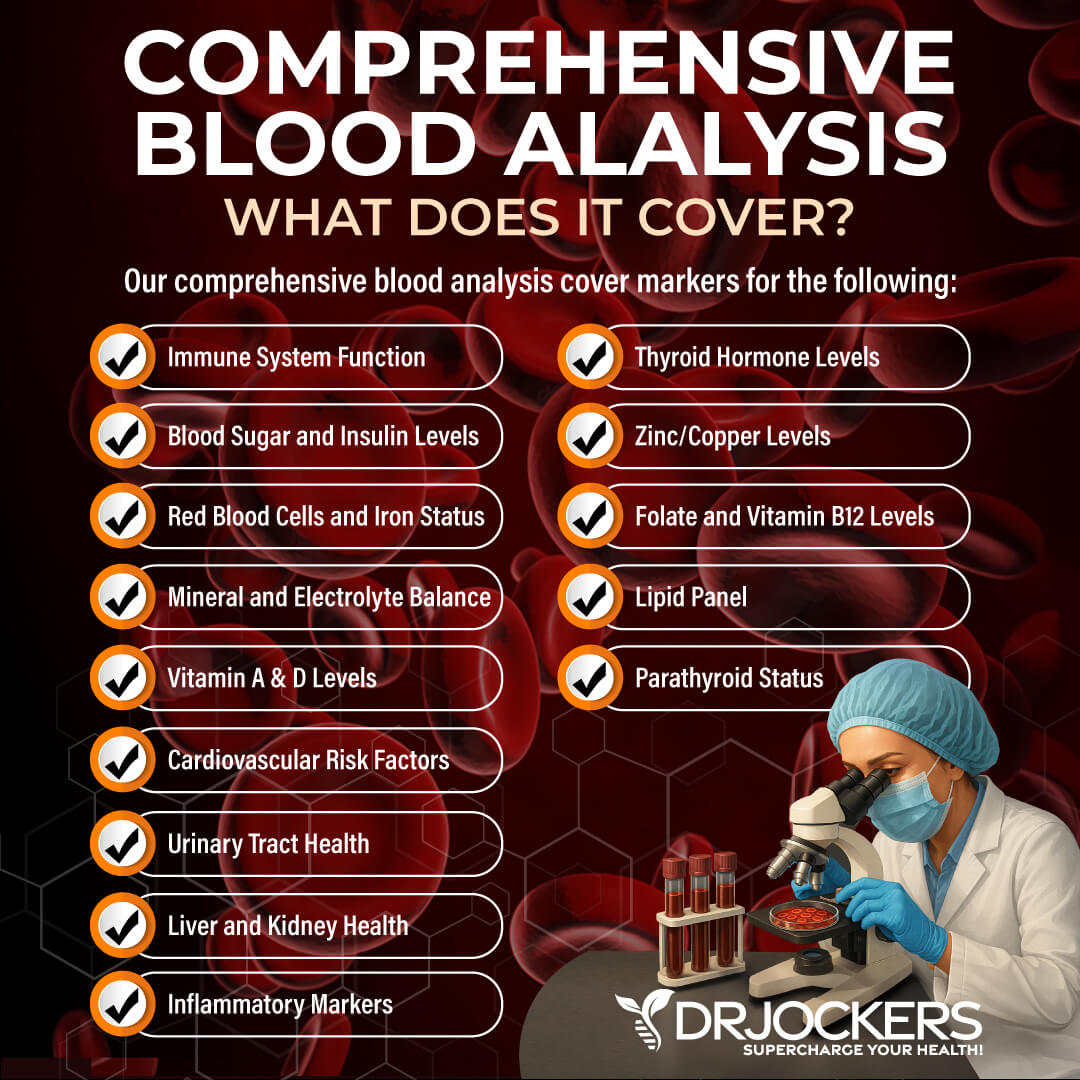
Conclusion on Dyspepsia
Dyspepsia is a general term used to describe physical discomfort or pain in the upper abdomen. Functional dyspepsia is a chronic improper functioning of the upper digestive tract with no obvious cause. Many conditions can contribute to dyspepsia, and it is critical to identify your underlying issues.
If you are struggling with dyspepsia, one of the first steps you can take is to modify your eating habits. Consuming an anti-inflammatory diet with smaller meals and easy to digest foods may be very helpful. Avoiding trigger foods, cigarettes, alcohol, and certain medications like NSAIDs is important.
Taking care of gut health is essential. Using digestive enzymes, repairing leaky gut, strengthening your gut mucosa, and addressing gut infections are all important steps to improving dyspepsia. Managing stress and anxiety is also very helpful for eliminating symptoms.
Stool testing to determine the underlying cause of dyspepsia and the health of your digestive system can be extremely valuable. You should also consider comprehensive blood tests to understand what is happening on a systems level in your body.
If you want to work with a functional health coach, I recommend this article with tips on how to find a great coach. On our website, we offer long-distance functional health coaching programs. For further support with your health goals, just reach out—our fantastic coaches are here to support your journey.

Inflammation Crushing Ebundle
The Inflammation Crushing Ebundle is designed to help you improve your brain, liver, immune system and discover the healing strategies, foods and recipes to burn fat, reduce inflammation and Thrive in Life!
As a doctor of natural medicine, I have spent the past 20 years studying the best healing strategies and worked with hundreds of coaching clients, helping them overcome chronic health conditions and optimize their overall health.
In our Inflammation Crushing Ebundle, I have put together my very best strategies to reduce inflammation and optimize your healing potential. Take a look at what you will get inside these valuable guides below!




